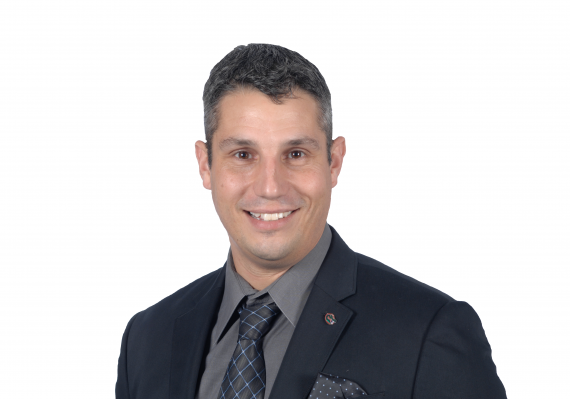The U.S. Department of Energy’s (DOE’s) Advanced Research Projects Agency-Energy (ARPA-E) program has awarded $1.1 million to Christopher Ferraro, Ph.D., P.E., to perform research on the prevention of damage on concrete used to house nuclear reactors.
When concrete is exposed to radiation, like it is in nuclear reactors, the aggregates within have potential to expand which ultimately leads to cracking and failing. This project will investigate a unique solution involving the conversion of boron and lithium which will be used to increase concrete’s durability and mitigate structural failure.
Dr. Ferraro, civil engineering assistant professor in the Engineering School of Sustainable Infrastructure & Environment (ESSIE) and principal investigator, seeks to explore ways to improve the concrete’s strength and extend its life span.
Currently, the majority of nuclear power plants housed in the United States are under a renewed 40-year license.
“If the boron proves to reduce or eliminate the expansion caused by radiation, it would mean that nuclear power plants using this technology would be much more likely to continue operation beyond their current 40-year license period,” Dr. Ferraro added.
His research supports the current mission of the DOE’s Light Water Reactor Sustainability Program by providing a scientific basis for the design of newly constructed nuclear reactors beyond 60 years.
“This award is an impressive testament to Dr. Ferraro’s national reputation as an expert in cementitious materials. His research is leading the wave of next-generation civil materials design and application, with an emphasis on increased durability, broader implementation and reduced carbon footprint,” said ESSIE director Kirk Hatfield, Ph.D.
Dr. Ferraro states that the increased productivity will lead to a decrease in production costs and maintenance costs of nuclear power plants resulting in lowered dependence on foreign energy.
“The goal of the research project is to develop additives that can eliminate the damage and cracking concrete typically experience when exposed to radiation,” Dr. Ferraro said.
This project produced by the University of Florida is among 30 awards receiving over $37 million in funding from the Department of Energy’s Advanced Research Projects Agency-Energy (ARPA-E) Innovating Through Unconventional Ideas initiative.
